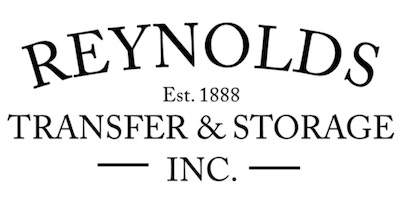The items from a 3-bedroom home have an average weight of 9,000 pounds. This varies based on the square footage of the home, among other factors. Homeowners can find it nerve-wracking putting the safety of their belongings in a moving company’s hands. To alleviate some of the stress, some homeowners opt to pay more to get additional coverage. The other option is to take out a separate moving insurance policy.
What’s the Difference Between Coverage and Moving Insurance?
With both valuation coverage and moving insurance, the owner receives compensation for items damaged or lost due to the moving company’s negligence. Valuation coverage specifies a moving company’s liability level for the value of your lost or damaged belongings. This coverage would be in effect if it was due to the moving company’s negligence. However, moving insurance also covers damage or loss due to what is known as “Acts of God”.
An “Act of God” is an event occurring due to natural forces outside of human control. Examples of “Acts of God” include natural disasters such as hurricanes and tornadoes.
It is important to note, based on federal law, interstate moving companies must offer valuation coverage. However, they are not certified to administer moving insurance. Some moving companies may be able to provide recommendations for third-party insurance providers they have worked with in the past. Or they could also facilitate the sale of this type of insurance from a company with which they have a preexisting relationship.
Here are the Types of Valuation Coverage Offered by Moving Companies:
1. Released Value Coverage is also known as Basic Liability Coverage (and also referred to as Released Value Protection).
It is offered free of charge by most reputable licensed movers as required by federal law for interstate moves. There is no additional charge for this basic coverage.
However, remember this is the lowest coverage level for your belongings. Therefore, it only provides partial coverage. For intrastate moves, released value coverage is $0.30 per pound while for interstate moves it is $0.60 per pound.
With Released Value Coverage, compensation for your damaged belongings is based on the item’s weight and not its actual value – as indicated by its name. This means heavier higher-valued items won’t be adequately covered. For example, if your solid wood 200-pound antique dining table was damaged beyond repair, you would only be receiving $60 in compensation (for an interstate move). It’s unlikely you will find a comparable replacement table at that price.
2. Full Value Coverage (or Full Value Protection) is also offered by moving companies, by federal law for interstate moves.
By default, moving companies will move your belongings with Full Value Coverage. This is the case unless you specifically indicate you would like Released Value Coverage instead.
State laws dictate regulations for intrastate moves. To get helpful information for local intrastate moves, check with your state, county, or local consumer affairs agency. Your state may also have a moving association that can offer helpful information.
A Full Value Coverage claim is settled in one of the following ways:
- Paying out a cash settlement for repair cost or the current market replacement value
- Replacing with a similar item
- Repairing the item
The moving company decides the settlement method. It is important to thoroughly review the moving contract. Make sure you fully understand how the moving company calculates replacement values. Also, be sure to educate yourself on the moving company’s liability limits as it relates to coverage.
Also, remember moving companies can limit their liability if you decide to pack your items on your own. Doing so may decrease your overall moving bill. However, you run the risk of not getting compensated for items damaged in transit.
In addition, items of extraordinary value (valued at more than $100 per pound) must be reported to the moving company.
However, it can limit its liability of damaged or lost extraordinary value items. Be sure to get the details on this before moving day.
Although Released Value and Full Value Coverages are two main types of coverages offered, some moving companies may offer additional types of value coverage. Request information on all the value coverages available to make an informed decision.
3. Some moving companies may recommend or facilitate the sale of Separate Liability Insurance or Third-Party Insurance.
If you are moving items of extraordinary value, you may consider paying for this additional moving insurance to get full protection. You are not required to purchase this third-party moving insurance through the moving company. You can find a company that offers this type of insurance on your own. If you decide to purchase it through your moving company, be sure you receive a copy of the policy at the time of purchase.

Will My Homeowner’s or Renter’s Insurance Provide Adequate Coverage For My Move?
In most cases, the answer would be “no”. Although insurance policies vary across different companies, most of them will not cover your items when they are being handled by your movers. If items are stolen or damaged due to an accident during transit, your homeowner’s insurance may cover the damage or loss. However, if it is damaged due to the neglect of the moving company, there is a good chance it won’t be covered. To be sure, it’s worth having a detailed conversation with your home insurance agent.
If you find that your homeowner’s insurance covers your belongings while in transit, your moving company may request those details in writing.
Checklist of Moving Insurance or Coverage Questions You Should Ask Your Moving Company Before Move Day
- What is the moving company’s maximum payout amount for damage to or loss of your belongings?
- Does the coverage include damages to the homes from and to where you are moving?
- How long do you have to file a claim for damaged items?
- What is the process for filing a claim?
- Are there specific limitations to the coverage you selected?
- What is the deductible amount for the different levels of coverage?
- How is the valuation of your belongings determined?
Reynolds Transfer & Storage is committed to delivering your belongings safely to your new home through our Residential Move Services. Our move coordinators are happy to answer any questions you may have regarding coverages offered for your move. Contact us for more information.


Recent Comments